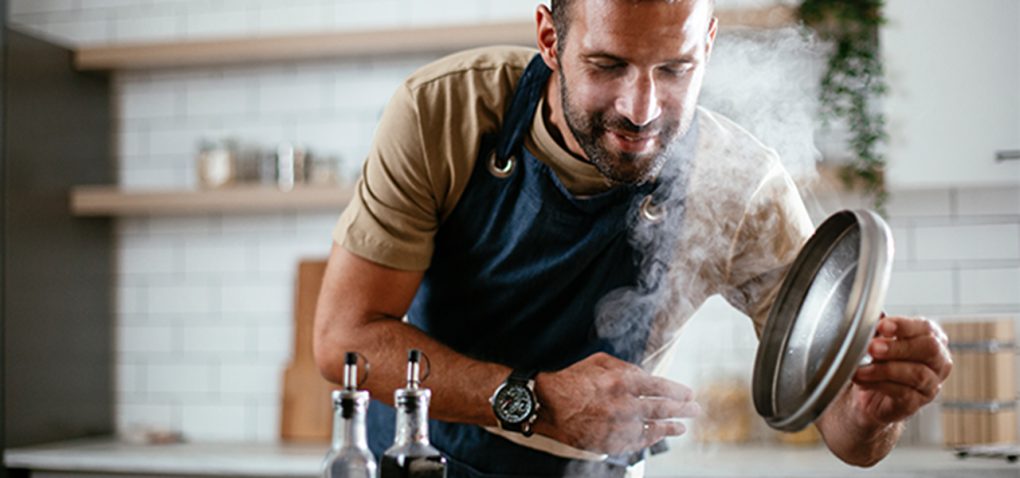
While cooking is a daily chore for lots of people, many find there is a great deal more to gain above and beyond the obvious meal at the end. Preparing meals for yourself or others can offer a sense of accomplishment, an opportunity to spend quality time with family, instill creativity - even an opening to handle stress and anxiety.
Think about it, when you’re in the kitchen, you must be present and focus on the task(s) at hand – measuring, browning, pouring, seasoning, stirring. You literally have no choice but to push out distractions, whether it’s household chores, stress from the office, or the ever-growing to-do list that just keeps piling up. Dole’s Registered Dietitian Melanie Marcus likens it to practicing yoga. “You have to be in the moment, with complete focus on the pose, breathing through the moves and get to that meditative state to reap the mental benefits. I always enjoyed yoga for the way I felt both physically and mentally afterward. It’s very similar with cooking, when I focus on the moment and the tasks at hand, I find I create a better dish (and it’s the key to avoiding injury too).”
Here are some things you can do in the kitchen to result in better cooking, but also mental relief.
1. First things first. Read your recipe the entire way through so you know what you’ll need, and how long the recipe will take. It’ll prevent mishaps like – forgetting to preheat the oven and it helps account for steps where ingredients need to be chilled or come to room temperature.
2. Mise en place. French for everything “in its place” - and it’s the key to a smooth cooking experience. Prepare each ingredient as needed for the recipe. Chop and measure ingredients as called for in the ingredients list so when it comes time to combine, everything goes smoothly. It truly makes for a more enjoyable cooking experience when everything is in the form you need it for the recipe.
3. Complete similar tasks together. For example, wash and dry all of your vegetables at the same time. Measure all dry ingredients and then move onto wet.
4. Check in on the flavor of your food. Taste as you go to be sure the final dish doesn’t need added salt. For example, if you lightly season your carrots, celery and onion as they cook down and taste your broth after it’s begun to simmer, adjusting as needed, it’s less likely you’ll have a bland broth at the end.
5. Remember that cooking is a skill that improves with repetition. As you hone your skills and learn your taste preferences, the ability to improvise will come naturally and should be embraced as you’re in the moment!
Quite possibly the best benefit of cooking, is that whether for yourself (or for others), cooking has a nurturing quality that both physically and mentally nourishes. One study published in The Journal of Positive Psychology found that everyday creativity (such as cooking), resulted in self-reported positive impact and personal growth.
Your Dole Team

